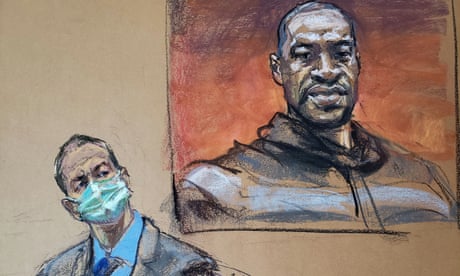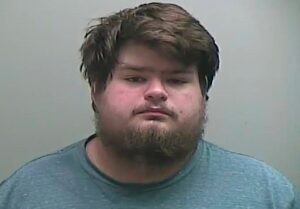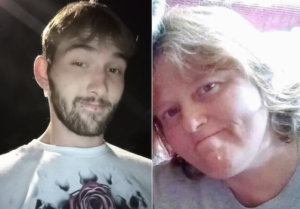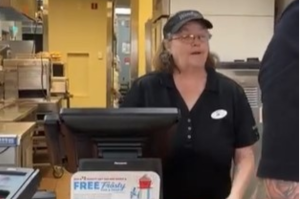A key prosecution witness has told the trial of the former police officer accused of killing George Floyd that he called the emergency services during the incident because “I believed I witnessed a murder”.
Donald Williams, a mixed martial arts fighter, said that as a bystander he pleaded with the then Minneapolis police officer, Derek Chauvin, to stop what he termed a dangerous “blood choke” as he knelt on Floyd’s neck for more than nine minutes.

“You could see that he was going through tremendous pain,” Williams said of Floyd, a 46-year-old Black man. “You could see his eyes go back in his head … You could see he was trying to gasp for air.”
Chauvin, 45, who is white, has denied charges of second- and third-degree murder, and manslaughter, over the death of Floyd last May. He faces up to 40 years in prison if convicted of the most serious charges.
And in a dramatic moment on the second day of evidence in Chauvin’s trial on Tuesday, another key eyewitness told the court she still loses sleep “apologising and apologising to George Floyd for not doing more” to save him, even as police officers aggressively kept bystanders at bay.
Williams’s testimony came on Monday afternoon and Tuesday morning, following opening arguments in the closely-watched trial and two earlier witnesses.
He said that he tried to intervene as officers had Floyd pinned flat to the street next to a police vehicle during the arrest attempt, with Chauvin pressing his knee into Floyd’s neck.
But Williams said he was prevented by another police officer, Tou Thao, who was standing out in the street right next to Chauvin and Floyd, and pushed him in the chest and back on to the kerb.
Thao also prevented a woman who identified herself as a firefighter from checking Floyd’s pulse, the court in Minneapolis heard.
Williams said he raised his voice in anger but did not otherwise intervene “for fear of myself and fear of people around me” from the officers who were, as is standard on US streets, armed.
As Floyd was eventually taken away by ambulance, Williams called the 911 emergency to report what he believed to be a crime – essentially calling the police on the police.
He can be heard repeatedly saying “murderers, bro” on the call, audio of which was played in court.
Williams said that the remarks about his fears were directed at Thao, whom he said stepped up close and started filming him with a body camera. Williams cut off the call to the authorities because he said he felt intimidated by the officer.
On Monday, Williams said that he watched Chauvin deliberately shifting his weight to add to the pressure on Floyd’s neck and that he saw the prone man “fade away” like freshly caught fish.
On cross examination, defence lawyer Eric Nelson put it to Williams that he was increasingly angry and threatening as he taunted Chauvin by calling him “a bum” at least 13 times, “a bitch” and telling him that “within next two years you will shoot yourself”.
Williams denied he was letting his anger get the better of him and that he was frustrated because people were pleading for Floyd’s life and Chauvin and the other officers were not responding.
The judge granted a degree of anonymity to four witnesses who were under 18 years-old at the time of the incident by saying there would be no video broadcast of their evidence and their names would be blocked out on the audio feed.
However he said that he could not prevent the media from reporting their names.
They include Darnella Frazier, whose more than nine-minute video of Floyd’s death swept the globe last spring and prompted mass protests to demand racial justice in the US around the world.
Frazier, who was 17 at the time, has already spoken publicly about the incident and has been widely identified in the media.
Frazier told the court on Tuesday that Floyd looked “terrified and scared, begging for his life”.
She was so horrified by the scene that she told her younger cousin to go into a nearby store so she would not have to see it, the court heard.
Frazier, who sobbed at times as she gave evidence, said that she then pulled out her phone and began recording.
The prosecution used Frazier to reinforce the case they are building that Chauvin maliciously kept his knee on Floyd’s neck even when it was clear the detained man was not resisting arrest and was increasingly in danger.
Frazier said that despite the appeals from the crowd, Chauvin did not ease up as he pinned Floyd down.
“He had like this cold look,” she said. “It seemed as if he didn’t care.”
At another point, Frazier said Chauvin reacted to appeals from the crowd by increasing the pressure on Floyd.
“If anything he was kneeling harder, like he was shoving his knee into his neck,” she said.
Frazier denied defence claims that the police were threatened by the growing crowd. She said they wanted to intervene to help Floyd, who was in distress.
“Any time anyone tried to get close, they [the police] were defensive,” she said.
Frazier said she felt threatened by the police officers, including Chauvin, who put their hands on the containers of mace spray that officers carry.
Frazier concluded her emotional testimony by saying she stays up at night filled with regret for not having done more to help Floyd.
“I ended up apologising and apologising to George Floyd for not doing more,” she said.
But, Frazier added, it is not about what she should have done. “It’s what he should have done,” she said in apparent reference to Chauvin.
Prosecutors have presented Frazier’s video as compelling evidence of Chauvin’s guilt.
“You can believe your eyes, that it was homicide, it was murder,” one of the prosecutors, Jerry Blackwell, told the court in his opening statement on Monday.
Meanwhile, Nelson has told the jury to focus on the wider picture and not just the nine minutes and 29 seconds of video. In his opening statement, Nelson said the evidence will show that Floyd was under the influence of drugs and that the force used against him was reasonable because of his behaviour.
The trial continues.






